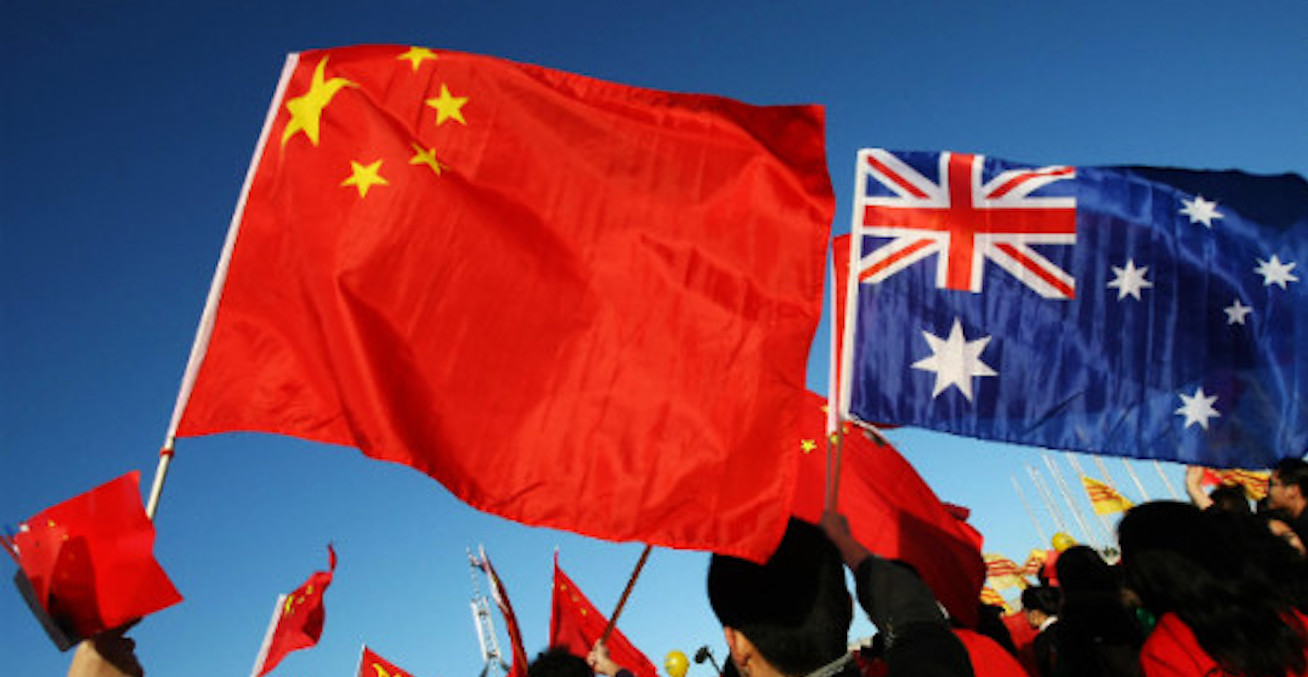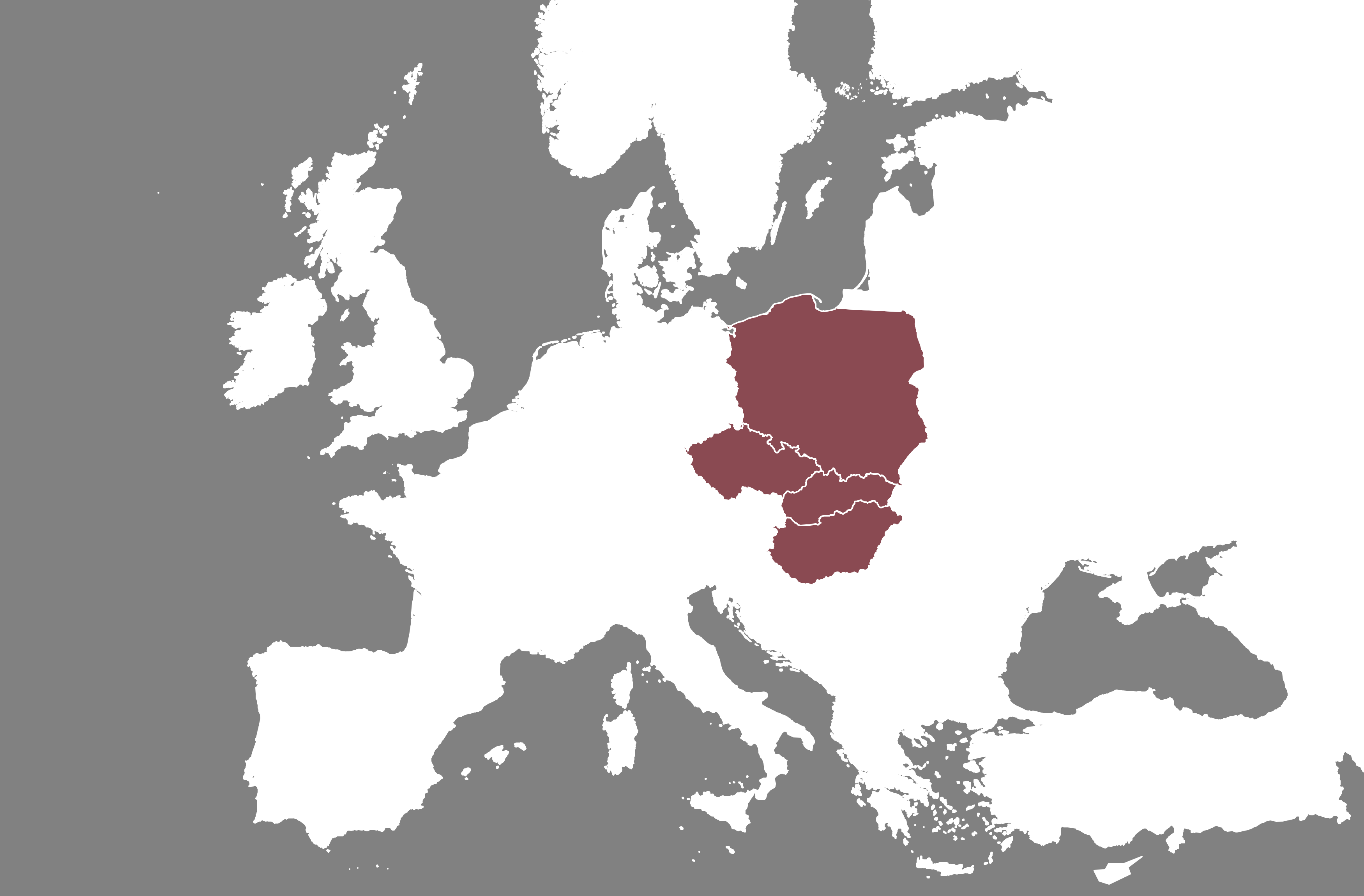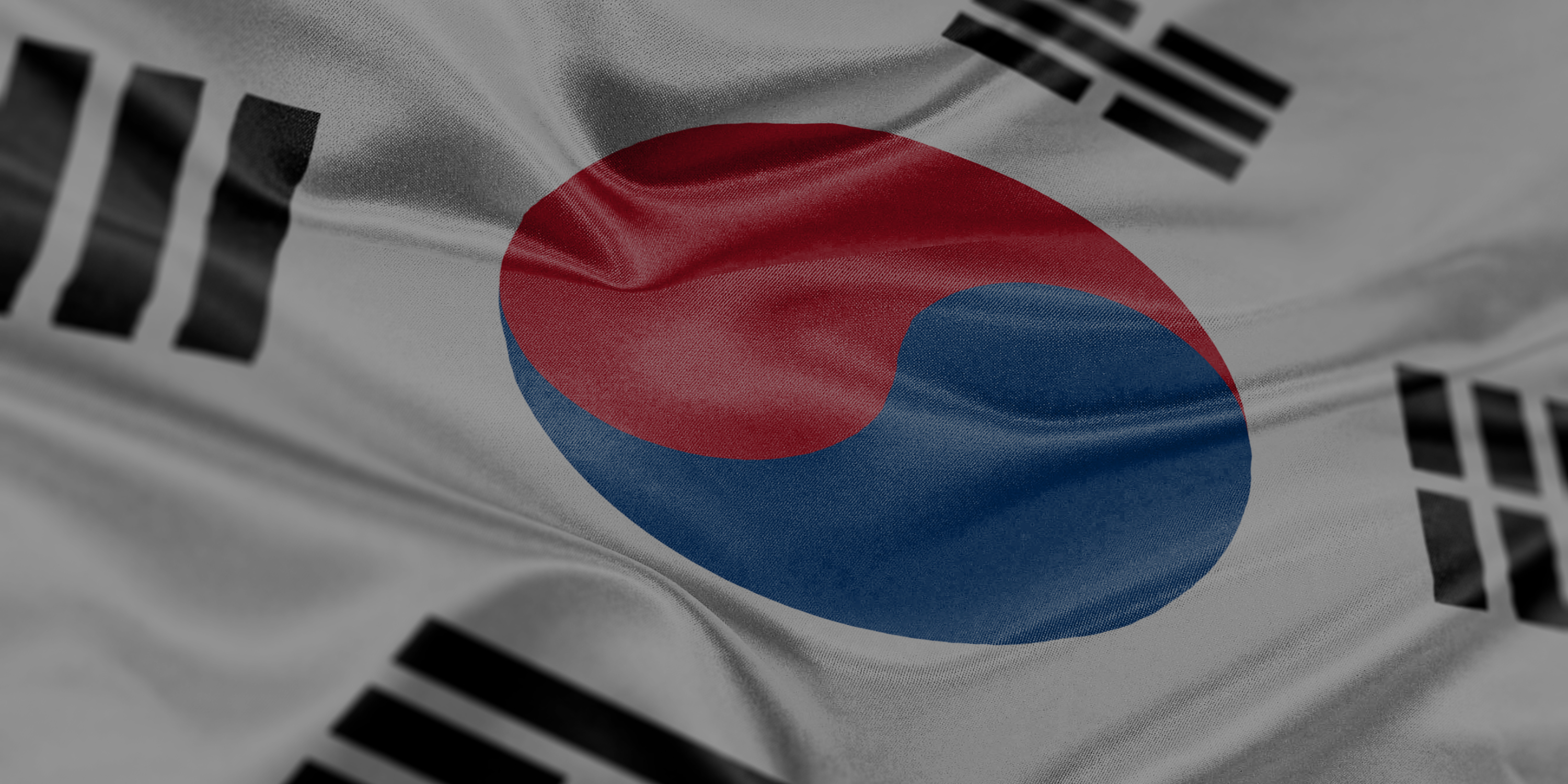‘Influence operations’ are necessarily neither illegal nor crossing the red line. One of the roles of having embassies is trying to influence the view of your country in the country where the embassy is. That is a part of public diplomacy, that is an influence operation. It is not about ‘Chinese influence operations’. It is about specific parts of the Chinese Communist party using alleged third parties to interfere in Australian democracy. The Australian government has been quite explicit about who they see as the perpetrators. It has also taken decisions, to which the Chinese government has reacted very badly, in the knowledge that this will happen. And the evidence of Chinese economic punishment for those Australian decisions is very hard to find.
China is very often discussed either as a threat or an opportunity. It may be both, but especially in the Czech Republic, it is often seen as binary. We often hear that it is either human rights or business. If we do business with China, we are sacrificing human rights. If we speak about human rights, the business will suffer. What is your comment on this?
That kind of binary argument is often presented also by Chinese interlocutors when they come to countries. For example, in Australia, they often say China is the largest trading partner by far. If you, your government, or an organisation in Australia take actions Chinese government disapproves of, it could negatively affect Australia’s relationship with China. And for many countries, there is the assumption that if you trade with China, then there is going to be a pressure on you both from China and from within not to take policy decisions on economic or noneconomic issues that displease China. You often hear the phrase: “You should not unnecessarily annoy China.”
If you look at Australia’s trading relationship with China, in terms of share of the total trade and share of exports, it trades the most with China than any major economy, potentially in the world – 34 % of Australian exports go to China. And yet successive Australian governments from both sides – Labor-led governments and Liberal Coalition-led governments – have repeatedly decided to take positions on issues that China has expressed a view on and that are not aligned with the Chinese view, from the South China Sea to discussions about the recent arrests of Canadians in China, without any noticeable backlash from China. So that suggests, at least for Australia, that the assumption that if you trade with China and you unnecessarily annoy China in other areas, you are going to pay a heavy economic cost, does not hold up.
Would you say that accepting this binary is basically accepting Chinese discourse in a way? You mentioned that is what the Chinese interlocutors say.
Yes, you have got two levels. One, just to make that connection between trading figures – those are thousands of individual decisions made by corporations on each side – and government-to-government relations. They are not governments’ decisions – the Australian government does not trade with the Chinese government. Australian firms interact so that conflation of trade figures, which are driven by market dynamics and largely, particularly in the Australian case, undertaken for commercial reasons by non-state actors, with foreign policy is questionable.
Second, going back to that phrase that you hear that you should not unnecessarily annoy China. That recognises on some issues the differences of interest between their government and China will be so large and important that different positions will be taken. But that “unnecessary” mainly means that the Chinese government has the ability to determine what is necessary and unnecessary. And for many people who use that argument, they have a list of what they think are unnecessary issues where the government in question should not take policy decisions different than China – for example, it should not speak out in favour of July 2016 ruling favouring the Philippines over China. They very rarely list what would be the necessary issues, where they think governments or whoever should take the position different to China.
So is your point that when it comes to relations with China, politics and economy are more independent than most people think? It is not that you have to choose either/or but there still has to be some connection, right?
I focus predominantly on the Australian case. China is by far the largest export destination; that suggests that Australia is very economically dependent on China. Unlike Japan, Vietnam, Taiwan, or even South Korea, Australia faces no sovereign rights disputes with China, no territorial disputes with China, and no history of being in a war with China – there is no kind of historical overlay as you get with neighbouring countries. Australia, in some cases could be seen as an ideal type of country with no direct security concerns with China, no history of conflict with China, and a very large trading relationship. And yet the Australian governments or successive administrations have not followed what is often presented as a rule. They have taken decisions, to which the Chinese government has reacted very badly, in the knowledge that this will happen. And the evidence of Chinese economic punishment for those Australian decisions is very hard to find. It could be that the case of Australia is not representative of the general situation in other countries; perhaps it has specific factors that make it less susceptible to this presumed Chinese pressure.
We hear about “the Chinese influence,” “the CCP interference,” you talked about “United Front interference” today. What is the language that we should use?
It is quite difficult, because this is a new area of discussion, particularly in Australia where public discussion about relations with China on these issues really came about only during the last three or four years. And at the beginning, the discussion was about not necessarily United Front activities in particular but Chinese influence operations in general in Australia. I think that the discussion in both Australia and other countries with similar domestic political concerns, the language has become more precise.
“Influence operations” are not necessarily illegal nor crossing the red line. One of the roles of having embassies is trying to influence the view of your country in the country where the embassy is. That is a part of public diplomacy, that is an influence operation. I think that in the beginning there was this conflation between influence operations, where you try what is legal and above board andnd interference operations, where there is an attempt of either illegally or immorally, to directly influence Australian politics in a way that both the Australian government and the Australian people would find objectionable. Australia recently passed laws about foreign funding of political parties, for example, to reduce the scope for foreign governments with a focus on China to have a legal right to for example fund political parties in Australia. The law followed from the concerns about interference operation and what used to be legal is now illegal.
You said that to influence other countries is pretty standard for anyone, any embassy would be doing that. The argument to that would be that what China is doing is uniquely illegitimate, if not straightforwardly illegal.
As academics, you and I, we write papers arguing about certain government policies that are often critical – like that current policy is not proper, it should change to this policy that I am supporting. That is, without a doubt, an attempt to influence government policies. That is our job.
In the Australian case, I guess, the major issue of what was classified as “interference” led to the decision by the ruling party to make a public discussion about it. One of the key ones was that a China-born businessman in Australia, who had applied for permanent residency, was providing financial contributions to an opposition’s senator. It was observed that that this senator stated positions on the South China Sea disputes which diverged from both the current Australian position but also from his own party. There was a link made between getting money from this particular business person who was the head of one of the United Front party linked civil society associations. So there seems to be an example of donations from a foreign actor to an Australian politician, affecting a senior politician’s views improperly. Once it became public, the senator quickly stepped down. And the China-born businessman who was providing donations did not succeed either with his application.
There are a couple of other examples of alleged interference. There was an allegation that the Chinese government through third parties pressured the Labor government to support an extradition treaty with China. Australia ended up not supporting it. The allegations made by many people, who might be well placed to know what happened, was that the message was sent that if the Labor party did not support in the coming up election the extradition treaty, the Chinese government would try to influence the ethnic Chinese votes against the Labor party through third parties. So again, this has not been made official. It has been reported repeatedly by mainstream media. It has not been denied by the Labor party, but it also has not been confirmed.
There are a few other examples at the local government level, where the local government received letters from the Chinese embassy claiming that their actions were hurting the China-Australia relations. For example, there was a flag of Taiwan in a painting with many other flags by high school students. The Chinese Embassy pressure did not play well in Australia.
Australia was perhaps the first one to start this kind of discussion, although as you said, it is still a new thing. I would like to ask you about the lessons learned in this regard. Specifically, how would you assess the Australian response towards what the ‘CCP interference; in terms of quality and quantity? Was it exaggerated, was there too much of hysteria, as would many in China say for instance? Or was it too late and inadequate and the interferences have reached alarming levels?
The fact that other mostly western countries like New Zealand, Canada, the USA and some European countries, have come to Australia to talk about this issue shows that Australia is seen at least as a model. In Australia, there was a lack of pre-existing laws about foreign donations to political parties. Many countries have long-standing laws, the USA is a good example. They limit or prohibit foreign donations to political parties based on the assumption that it is an avenue for politic interference. Australia had no laws at all. So, one reason that Australia stood out and, in some senses, might have been the first mover, was the relative lack of pre-existing legislation. Not only for sources linked to China or allegedly linked to China but anybody.
I was talking to some of the people of the Turnbull administration about why they decided to do this. They knew it would not go without at least diplomatic backlash. Their argument, which I think is true, is that one of the strengths of liberal democracy is that you can shine a light on areas that have been dark before. And what they want to do is to shine the light, create a public political discussion about this issue that has been long a concern of the Australian intelligence community with these recent examples.
I think that was a proper move. Not only did it bring in an issue that is of core interest to Australians, who are strong supporters of having an autonomous liberal democratic system, but again it showed strength. Many people argue against the decision, that the government was overstepping, that there was a risk of a backlash against all ethnic Chinese in Australia not just focused on the alleged perpetrators of these interference operations. Australia is a multi-ethnic country with a large population of ethnic Chinese who could suffer from increased communal tensions. It is still early to say, but three years after, there is no real sign that has happened. So, I think overall, the timing was largely driven by events.
I can understand that worry about conflation, it can be used as a stick against all ethnic Chinese in Australia. That is a serious concern. But I think, to be fair, the Australian governments, both the Turnbull administration and the administrations after, are being quite careful in their language. First of all, it is not about ‘Chinese influence operations’. It is about specific parts of the Chinese Communist party using alleged third parties. The government has been quite specific about who they see as the perpetrators. There is more criticism of Australian political parties about why they have been accepting money from foreign actors for a long time. In particular, earlier of Australian politician Michael Johnson, who was a liberal politician before, and more recently Sam Dastyari. It has not been only a focus on criticising the Chinese Communist party for alleged activities that of course the Chinese government denies happened, but also criticising the Australian political system for being open and taking steps to reduce those legal gaps as I say.
Sometimes you can hear in such discussions that the democratic political systems are too open and that this is putting western democracies at a disadvantage, which allows China to penetrate them more quickly and influence them in ways that we would consider harmful. We are also facing a much more uncertain environment in China when it comes to the potential influence of others. What is your take on this? Is it really so that democratic political systems put us at a disadvantage?
I think there is very limited scope for trying to influence the Chinese government to become less dictatorial, less authoritarian. One should not spend too much effort on trying to do that.
As a net assessment, I still think that liberal democratic systems are more able to manage these attempts effectively. If you look at the Australian case, one of the key triggers for the Australian government’s decision in 2016 to have a more open discussion was a collaboration between a public broadcaster, which is independent of the government and very critical of conservative governments (ABC), and Fairfax, which is the second largest print media company. They worked together for quite a while to develop stories about these alleged interference operations, who was behind them, who they targeted, and what were the assumed outcomes, including this focus on senator Sam Dastyari. That shows that free media was a key component and trigger for this discussion.
Instead of seeing openness for debate as a weakness, including the criticism of the government, the language that they used was going to shine a light on this issue. Even though we know that it is going to criticise the government of our largest trading partner. Overall, I thought that it was a brave decision. The easier decision is to keep it just within the intelligence community and keep it as it had been before. But I think the decision to play to the strengths of liberal democracy and to have trust that Australians can listen to the different opinions and make a decision whether they thought the government was acting correctly or incorrectly, that was the right decision to be made. And it was interesting that the countries that seem to have sought the most information from Australia about this were other liberal democracies like New Zealand, the USA, Canada and the UK. I think the biggest problem people worried about were the weaknesses of liberal democracy in face of competition for ideas with authoritarian states where they overemphasise the strengths of authoritarian states’ ability to control messages to their people. I think many people in authoritarian states have a pretty healthy discount for what their governments tell them. There is also the lack of recognition about liberal democracies of their strengths in the long run. Many people criticised the Turnbull government, saying “you are harming relations with China unnecessarily. There is not enough evidence that they have shown us to uphold these claims. Or as I say, there could be unnecessarily inflaming racial and communal tensions in Australia.” Three years after that decision, these fears have not been realised, and the benefits have.







